I mentioned last week that life has interrupted the regular writing flow, and I promised to address why.
Part of the reason is a necessary down cycle: a period of calm, reflection, deciding what is next. A necessary shifting of gears, as Kathleen Devanney put it here:
Down cycles are not a bad thing. Nature operates in such cycles. It cannot always be Spring. A period of hibernation is what sets the conditions for an explosion of creation when it is needed.
I think we all sense such a time coming. It will be all hands on deck soon enough. Sorry if that sounds ominous, but I feel it to be true. No sense denying it.
But the real reason I’ve been out of creation mode—the more down-to-earth reason, I guess—is that I’ve been going all-in on the farm work.
I’ve been getting my hands dirty. Digging things. Building things. Chain sawing things. Planting things. Feeding things.
I’ve been learning why it matters.
I’ve also been learning how thoroughly it whips you. To the bone.
After a day of tree-falling, splitting and stacking wood, driving a tractor, digging trenches, building fences, framing and building a cabin, plumbing, roofing, planting, working in the garden, feeding and caring for animals (including waking up in the wee hours to fend off predators)1…
...there’s not much left in the tank for creating.
But I’ll tell you what there is.
1. A sense of efficacy, self-sufficiency, and harmony with reality.
There’s a deep and satisfying sense that one has applied one’s brain and will and hands directly to reality, and succeeded.
The world does not build cabins and dig trenches and stack wood into neat piles. Human will and effort do these things.
I have no illusions about “mastering” nature or any such nonsense. If anything, we master it by working in harmony with its rules.
And when we do, it feels right. It feels unbelievably satisfying, actually.
I think we all have a creator impulse. Building something, whether a house or a wood pile or a garden, watching it grow and stand on its own and take on life and character, and knowing that your effort made it so, speaks to something deeply baked in the DNA. If it didn’t, we wouldn’t spend nearly so much time standing back and admiring our creations.
Food tastes better when you grow it from seed and harvest it directly to your plate. It contains a life energy—in part your own returned work energy, I suppose—that you will never get from inert, packaged food in a store.
And there’s no reward as sweet as a loving nuzzle from an animal that you’ve cared for.
2. A lesson in pain, and mental toughness.
Of course farm work is not all feel-goodery. Far from it.
There have been mornings where my back was so sore I couldn’t stand up straight. And dehydration a-plenty. I crushed my thumb so hard in the wood splitter it nearly popped like a grape.
(Thankfully, I hit the reverse lever before that happened, and after some choice language and probably amusing-to-watch hopping, some ice did the trick, and I managed to avoid a hospital visit. Maybe you’ve heard: those can be deadly these days.)
(Sub lesson: machines, though helpful, are indifferent to your suffering. Something to think about.)
Pain is a great teacher. Farm work teaches you this: embrace difficulty.
Welcome it. Accept it.
So much of our lives are spent in mental anguish because we resist this simple truth. Accept difficulty and difficulty vanishes—it ceases to be a mental experience for us. And soon after, we begin to find ourselves capable of overcoming difficulties, since we are no longer mired in self-made emotional hell.
This might be the definition of mental toughness. Farm work gives you this.
3. Action-orientation.
Working the farm, there is no room for whining and negativity, which are nothing but wasted energy. There is only work to be done.
Think about what most people fret and whine about these days. Somebody you don’t like said mean things on Twitter or your TV screen? Cry me a soggy saltmarsh. It couldn’t matter less.
There is not a problem you and I are up against for which the solution isn’t acceptance and focus and effort.
This is all good stuff to learn. Or perhaps, to remember, if you believe in ancestral memory.
Which leads to perhaps the most important lesson…
4. A reminder of what it is to be human.
It feels very human to spend a day working in this way.
We are not cyborgs, after all, though we act like it most of the time.
Techtopia has made it possible to fritter away our lives interacting with electronic devices, and never apply our hands to anything “real” at all, to never understand the consequences of doing a thing badly, to never understand, for example, that if we don’t follow some time-honored rules of building, our house of sticks will collapse.
(A thinly-veiled metaphor that I hope needs no explanation. 😉)
Most humans, ever, have had to labor in fields, grow crops, raise animals, and create and build what they need with their own hands.
True even up until a century ago.
Like any good paradigm, the first thing Techtopia teaches you is that the Other paradigm, this life of the past, was Bad. It was brutish and short and miserable, and Techtopia has made everything wonderful and abundant and easy. You’re welcome, Citizen.
Unlike in that nasty life of the Real, in Techtopia we can skate, (seemingly) consequence-free. Nothing is real. We go online and trade fictions. My fiction is better than your fiction. Bah, you idiot! Your fiction is not fit to be written on my used toilet tissue!
Online, there are no immediate physical consequences to constructing poorly. It’s all about feelings.
You hurt my feelings. Oh yeah? Well you OFFENDED me. A capital offence in Techtopia. Ah, but look how many “likes” my Tik Tok video got. Wee! No one is physically threatened. The roof stays over your head... somehow. The electricity stays on… somehow. The refrigerator stays stocked… somehow. The goods show up on your doorstep… somehow. With no effort on your part. And, at a click, you can enjoy any diversion, any pleasure, any distraction you can conceive of. Isn’t life grand?
Price of entry? Simple. Surrender your will, your sense of efficacy, your sense of reality, your basic sense of humanity.
Oh, and ignore the fine print which says: it can all be turned off. The electricity, the food, the goods, the pleasures—it can all go bye-bye, if the masters of Techtopia don’t particularly like what you’ve been saying and thinking and doing lately. (Or, if in their megalomaniacal psychopathy, they forgot that you can’t force false things to be true.)
Consequences, after all.
Reality always wins in the end.
So yeah, no apologies. I’ve taken a step away from the devices and the online vitriol, and instead hung out with the horses and chickens, and watched the trees sway on the mountains, and felt the sun on my neck, and I’ve learned (or perhaps more aptly, remembered) How to Human again.
I don’t regret a second of it.
BUT…
(You knew there was one coming, right?)
…we live in the world we live in.
Like it or not, the globalist elites, the would-be tyrants, the billionaire philanthropaths, the technocrats, the transhumanists, the eugenicists—whatever name you have for them—they’re part of reality, too.
And they are not fond of this efficacy and mental toughness and self-sufficiency business.
At all.
Think of a world in which these virtues were widely learned and adopted. How relevant would the existence of the elites be?
(Like we don’t already know the answer.)
The villains are here. They are real. To ignore them and their shenanigary would be to bury our heads in the sand.
We already tried that once. It got us a swift mule kick right into Dystopiaville. Welcome to George Orwell’s I-told-you-so.
We’ve talked quite a bit about the creation of parallel economies (shopping from local producers instead of megacorporations that are trying to kill you, for example). And adopting alternative media, alternative currencies, alternative banking, alternative medicine, and alternative food growing systems, and alternative everything.
In my view, given the state of corruption of mainstream institutions, these are necessary moves.
But they are not sufficient.
As Toby Rodgers put it the other day: “we cannot Amish our way out of this mess... If we just put up fences and raise goats, they will come for us.”
I think we all better come to grips, and quick, about what we’re up against.
Ironically, it may be a creator of fantasy worlds, one J.R.R. Tolkien, who understood this reality the best. Do you remember when Galadriel grants Frodo a vision of the future if the Dark Lord Sauron succeeds in returning the Middle Earth? Frodo sees the Shire burning, orcs slaying hobbits, his beloved friends in chains, enslaved, being whipped, his beautiful paradise transformed into a blackened wasteland.
Lesson, and heed it well, friends: It is not enough to create a perfect little Shire in a peaceful corner of the world and hope for the best.
Eventually the forces of Mordor will sweep over your Shire and reduce it to ashes and lead you and all the other hobbits off in chains. As they will with all the other lands in Middle-Earth. Because that is what the forces of Mordor exist to do.
Just look at what the villains are proposing.
When there are monsters (let’s call them orcs, for clarity) roaming the earth that believe what John Kerry and Davos set are espousing here, there is no such thing as “peaceful coexistence” or a “parallel society” where the Techtopians go about their project of enslaving and destroying all life on Earth, and they let the simple country folk peacefully dwell in their Utopia on the outside.
They are already coming for us.
They have to.
Lately I’ve been reading the Laura Ingalls Wilder books, e.g., Little House on the Prairie, and such.
If you’ve read them, it was probably when you were a wee person, and consequently you think of them as “kids books”.
But to a population of adults that are slowly being infantilized, I can think of no better books to re-teach us the value of hard work, of not complaining or feeling entitled to being supported, but instead facing the harsh realities that need facing with your wits and your muscles and getting after it.
The other day I read this passage from the book Farmer Boy, where Father speaks to his son Almanzo, about whether he should choose a town life or a farmer’s life:
“You’d have an easy life, in some ways. You wouldn’t be out in all kinds of weather. Cold winter nights, you could lie snug, in bed and not worry about your young stock freezing. Rain or shine, wind or snow, you’d be under shelter. You’d be shut up, inside walls. Likely you’d always have plenty to eat and wear and money in the bank.”
“James!” Mother said.
“That’s the truth, and we must be fair about it,” Father answered. “But there’s the other side, too, Almanzo. You’d have to depend on other folks, son, in town. Everything you got, you’d get from other folks.
“A farmer depends on himself, and the land and the weather. If you’re a farmer, you raise what you eat, you raise what you wear, and you keep warm with wood out of your own timber. You work hard, but you work as you please, and no man can tell you to go or come. You’ll be free and independent, son, on a farm.”
This.
This is what the elites want to eradicate. They can’t allow a world in which humans are still walking about free, with this sense of independence. Their paradigm won’t allow it.
This paradigm is built on obsessive control, down to the fucking genes in your body and the thoughts in your head.
Think about it. They tried to insert tech into every body on the planet. And nearly succeeded. They’re putting in the food supply. They’re putting it into flying insects. They’re putting it into the air and the rain.
Whatever qualities the elites may lack—basic human empathy comes to mind—ambition is not one of them.
Do you believe, at this late date, they are bound by anything like “ethics” or respect for your natural rights?
Do you believe they’re not going to try and restrict, regulate, or eliminate any “alternative institutions” you and I come up with?
Do you honestly believe they will allow you to “opt out” and live a long, happy life in freedom and peace and prosperity on your farm, sipping cider that you grew and crushed and brewed with your own hands, watching fireworks that symbolize your freedom and independence from tyranny?
Until you are in a maze of their design that they can observe you running through, you are the enemy, and they will not stop.
This is why they’re coming after the farmers.
I’m sorry if this is unpleasant to think about. But it is the reality.
Acceptance of our situation (rather than denial) is the first step to changing it.
Tempting as it might be to think that we must simply “turn the clock back” to simpler times, I’m afraid that is not going to do.
Clocks repeat themselves, for one. We don’t want to turn the clock back only to end up where we are again today.
And it’s too late, anyway. The forces of Mordor are already awakened. They stalk the land. They are already killing. They are already taking the children. They are attacking human health. They are attacking virtue. They are attacking life itself, and attempting to reduce it to hackable code.
Turning back the clock will not change this.
We are in their maze already, if you think about it. Look at the way we are communicating right now. It’s not like we’re dead-dropping letters written in invisble ink. We are using the DARPA-created packet-switching tech to communicate our revolutionary thoughts to one another. They know we’re having this conversation. We are in the Matrix of their creation.
(I prefer to think of it as a Cave we are trying to escape, but same concept.)
There is great value in learning ancestral, traditional skills, yes.
This is connecting to your basic humanity.
But I think we all know by now that this can’t involve going back to sleep while evil percolates and grows more powerful in the shadows.
As I see it, any “awakening” has to consist of:
1. recovering what is good about more traditional ways of life (the skills, the practices, the teachings);
but imbuing those things with…
2. a freedom-consciousness so that we do not take these things for granted or let them slip away again;
3. a deeper understanding about what it means to be human (and why everything fundamentally human must be preserved against forces of inhumanity);
4. a deeper understanding of darkness/evil, of our own capacity to fall into it, and be deceived by it, why it is inevitable, and therefore must be guarded against, eternally.
Evil, I believe, is what we must be specifically “awake” to.
I said in this post there will never be a utopia of freedom. Jefferson and the other founders understood this—the price for freedom is that it is constantly under threat, and therefore has to be eternally guarded.
There will always be villains trying to control our minds and enslave us. From now until forever.
Accept it.
By accepting it, we might allow for an awakened consciousness in humanity, a new awareness and vigilance against evil that makes it difficult for it to run rampant and enjoy it’s day, like it is doing now.
Not pining for the good old days. Pining for the good new days to come, wherein we safeguard what is good about the traditional ways of life, but add to it a hyper-vigilance against power accumulating in the hands of psychopaths who want to kill us off, or remake us as something ugly and enslaved.
Don’t bury your head in the sand, or in your homestead, for that matter. Shine the light of your consciousness on what is really happening.
The lesson of the farmer is this: don’t waste a second suffering in mental anguish, wishing things were some other way. Accept what is.
Then decide what you’re going to do about it.
I’m using “farm work” generically here, but I suppose “homesteading” work would be more accurate.





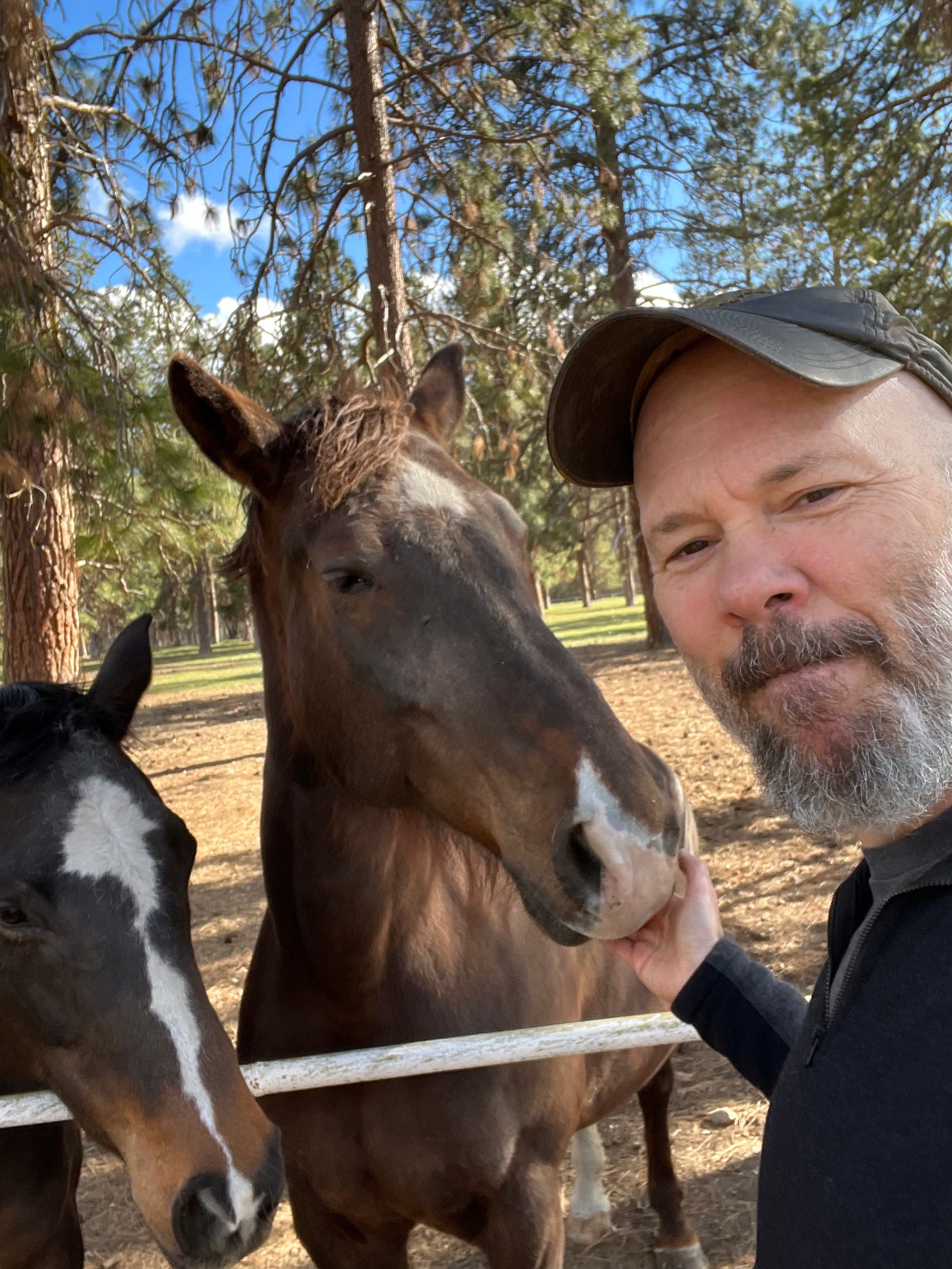
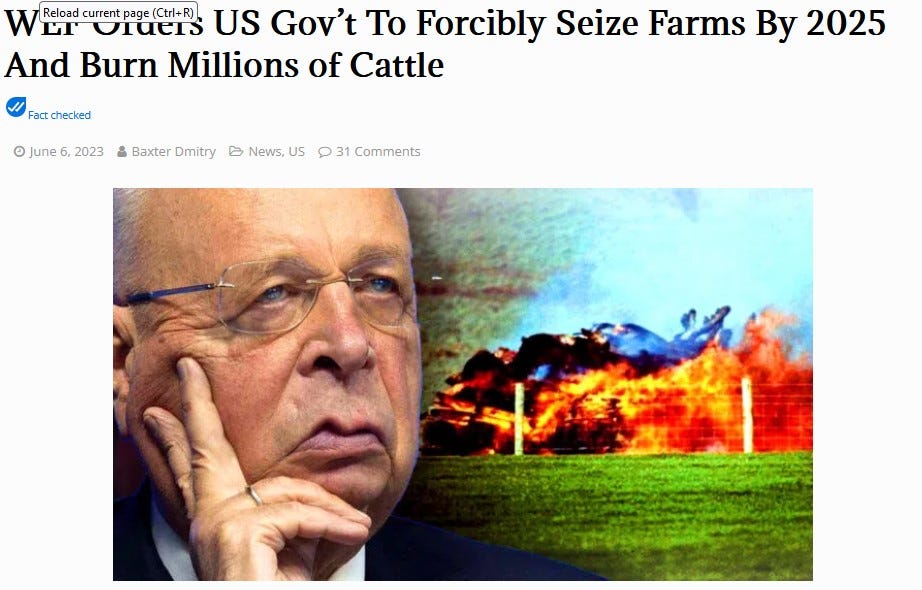
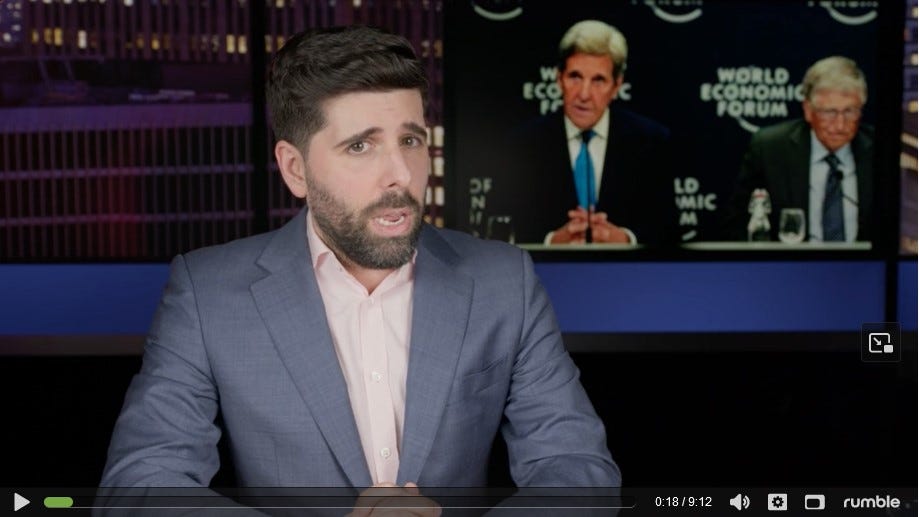

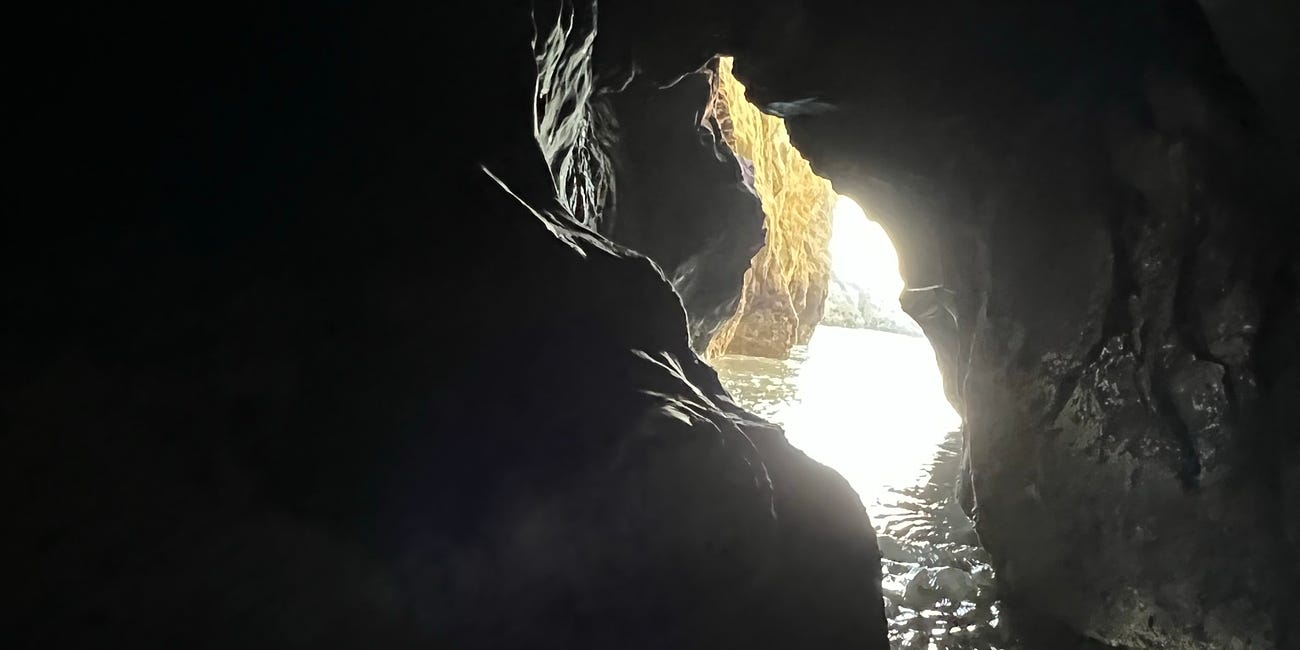
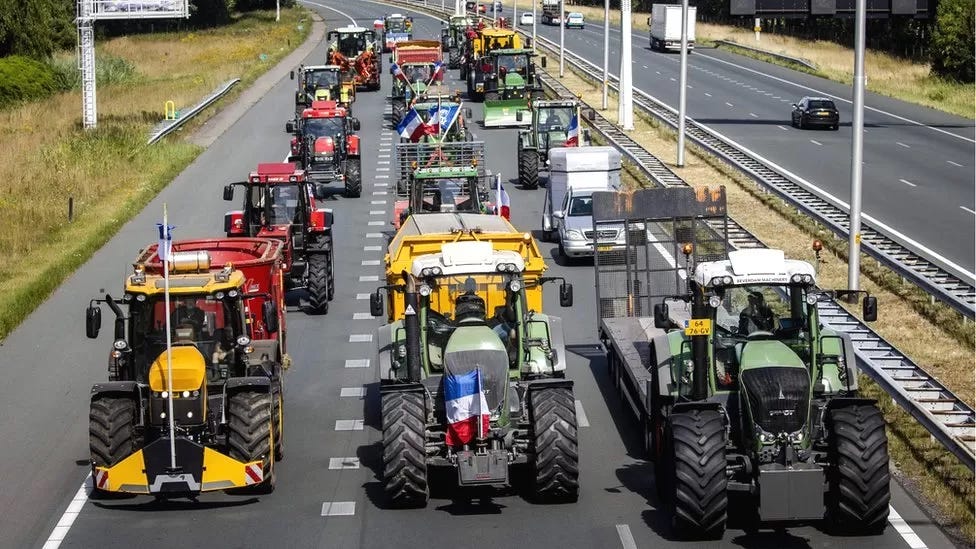

What a beautiful, thoughtful and balanced post reflecting your l time of unplugging. I really appreciated this and will re-read. I so relate.
And thanks for the shout out too! Best.
I love this reconnecting with what is tangible and real.
I also get sad reading this sort of thing. Because, due to decades of bad medical and public health advice, although such advice followed established Guidelines, my spouse is physically unable to participate in this sort of activity. They would utterly LOVE doing so. But this freedom has been wrenched away and is unlikely, barring divine miracle, to be returned.
It’s truly sorrowful watching others enjoy this rich connection with life, nature, hard physical labor, and to feel left on the outside through no fault of our own.
One cannot help wondering if making as many people as weak and debilitated as possible isn’t part of their plan of subjugation. The decades, yes, now a century of conventional medical disregard for true health and wellness has created generations now of sicker people than what lived before.
We each must do whatever we can do, trusting God for what we cannot.